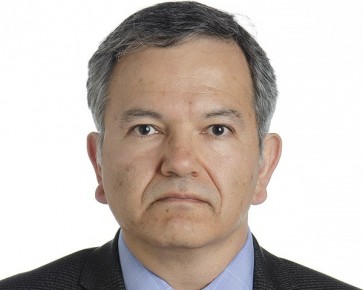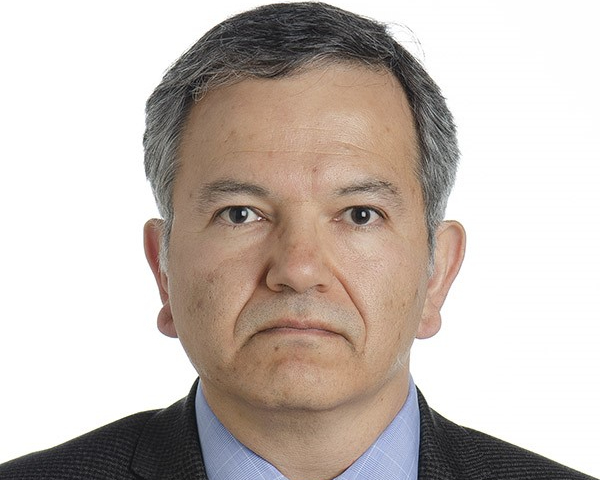
Alfredo Cuevas, International Monetary Fund (©IMF)
We think the accommodative monetary policy stance remains appropriate while the uncertain conditions associated to the pandemic continue to be a major element of the economic environment. If more accommodation were deemed necessary, a natural step for NBP would be to scale up the APP again – says economist IMF.
Obserwator Finansowy: How does the IMF assess NBP’s response to the economic crisis caused by the Covid-19 pandemic in 2020? What was the impact of NBP’s actions in 2020 on the Polish economy and the banking sector?
Alfredo Cuevas: NBP’s response to the challenges posed by COVID-19 was agile, forceful, and added innovative elements to existing policy frameworks. Confronted with an emergency that combined demand and supply elements in the real economy, NBP appropriately provided monetary accommodation by reducing its policy rate to 0.1 percent. Moreover, NBP also launched an asset purchase program (APP) to ensure stability in the country’s bond market, which is a key component of the transmission mechanism for monetary policy. The APP, moreover, contributed to maintaining a stable environment where firms, households, and the public sector, could finance their operations. This was in fact a significant contribution to the execution of the government’s economic support programs. NBP also introduced a series of macroprudential and regulatory actions designed to facilitate the continued healthy operation of the banking system (which entered the crisis in a position of strength in terms of its capitalization ratios). The low interest rate has had some adverse side effect on banks’ profits through its impact on interest margins, but the overall effect on the economy has been supportive.
One of the major objectives of the actions taken by NBP in 2020 was to stabilise the enterprise sector and the labour market. Poland will record one of the least severe recessions in 2020 in the European Union. How will it translate into an economic rebound in Poland in 2021?
Poland is well positioned for a strong recovery. While 2021 should be much better than 2020.
Much uncertainty still surrounds our forecasts for economic activity in Poland and elsewhere. Nevertheless, we think that Poland is well positioned for a strong recovery. While 2021 should be much better than 2020, we project that 2022 will be the year when the rebound fully takes hold in Poland. Although much less than last year, activity in 2021 will still be subject to the adverse effects of the pandemic, reflecting the continued sanitary restrictions at least in the first quarter of the year and the likelihood that the pace of vaccine administration will only allow a more widespread resumption of “normal” activities later in the year. However, the balance sheets of Polish corporations were in good shape before the pandemic, and the authorities’ actions so far have prevented an excessive deterioration of corporate and household balance sheets, while maintaining employment relationships. All of this should facilitate a strong rebound as the country emerges from the pandemic. In particular, the household saving rate has been elevated, pointing to a rebound in consumption when restrictions are lifted. Also, we expect that the Next Generation EU funds will finance additional investment expenditure mostly from 2022 onwards, contributing to boost economic activity.
The IMF has assessed that the NBP asset purchase programme (APP) was communicated clearly and met its stated goals of providing liquidity to government bond markets and strengthening monetary policy transmission. Does the IMF recommend that the policy be continued throughout 2021?
Maintaining the asset purchase programme in place at least for the rest of the pandemic makes sense, as significant uncertainty remains, and the program is flexible enough to scale it up or down as circumstances demand.
As I mentioned earlier, the APP has been quite successful. We think therefore that it is advisable that the APP be maintained, and that it should continue to be calibrated to market conditions. The current slow pace of purchases seems adequate for the present circumstances, given the state of liquidity in government bond markets and good pass-through of monetary policy to the yield curve. But the pace of purchases could be increased if needed—for example, if additional accommodation were required or if new market turmoil were to occur. Maintaining the program in place at least for the rest of the pandemic makes sense, as significant uncertainty remains, and the program is flexible enough to scale it up or down as circumstances demand. The program will yield its best results as long as it continues to be supported by a transparent and timely communication framework.
According to the IMF, Poland’s accommodative monetary policy stance during the crisis was appropriate. Can Poland have negative interest rates like the most developed economies currently do?
We think the accommodative monetary policy stance remains appropriate while the uncertain conditions associated to the pandemic continue to be a major element of the economic environment. If more accommodation were deemed necessary, a natural step for NBP would be to scale up the APP again. Nevertheless, in principle, negative policy interest rates could be worth considering if, in some specific situation, the authorities were to conclude that the APP is not providing as much accommodation as they judge necessary. Even in such a context, however, a variety of technical and institutional factors would need to be carefully weighed when considering that decision. In fact, not all advanced economies’ central banks have, after due consideration, opted for negative interest rates. But it is also worth noting that, in practice, some of the phenomena one would expect to accompany a negative policy interest rate are already visible in Poland. For example, Polish banks may already face, de facto, a negative interest rate on their holdings of NBP bills, because banks’ holdings of these bills are subject to the financial institutions assets tax (FIAT) at a rate of 0.44 percent. Moreover, yields on government securities with maturity in 2021 are already touching negative territory. Lastly, I would note that, given that inflation is projected to be close to its target in the relevant horizon, real interest rates in Poland may be currently as low as they are in some of the jurisdictions where nominal interest rates are negative.
In the short time horizon, the IMF does not foresee inflation threat in Poland or in its direct environment. This is an important factor of financial system stability. How will global inflation evolve in the coming years once the Covid-19 pandemic is over?
Consumer inflation fell in 2020 in advanced economies as a result of the pandemic, but it should gradually rise in the next several years as those economies recover. This does not preclude some temporary spikes, for example, on account of supply-side disruptions or large changes in commodity prices. Inflation in the euro area is most relevant for Poland, and we expect it to remain moderate in the period ahead. In our recent World Economic Outlook Update, published in January, we projected the inflation rate for the euro area at 0.9% in 2021 and 1.2% in 2022. After the pandemic, as the output gap closes, inflation should rise slowly toward its target, but remaining below the 2 percent benchmark. By 2025, our October 2020 World Economic Outlook projected inflation of around 2 percent in advanced economies and 4 percent in emerging markets.
Exports, particularly to Germany, were a strong driver of Poland’s economic growth in 2020. How, if at all, will the Covid-19 pandemic change the current configuration of global value chains, production processes and trade in Central Europe?
This is a very difficult question to answer with any sense of certainty. But I can offer a reflection. At the start of the pandemic global value chains were disrupted, prompting much discussion about the potential for reconfiguration of these value chains after the pandemic. One frequently heard, and plausible, idea was that there could be new opportunities for countries like Poland if some far-away elements of those value chains were relocated to Europe. And Poland would, indeed, be well placed to take advantage of such opportunities. However, the second wave of the pandemic during the autumn of 2020 was not marked by trade disruptions like those seen in the spring, perhaps moderating the urgency to reorganize value chains. We read instead stories about disruptions in the production of cars in some places because of the scarcity of computer chips, explained in turn by the surge in demand for computers and mobile devices resulting from the rise in remote work and education. In other words, one thing that seems more certain now is the drive to deepen digitalization, which was already a trend before the pandemic. This is, in fact, a priority area for the European Union’s Next Generation funds. Poland stands to benefit from significant transfers under this initiative—and the emphasis on digitalization is timely and welcome in view of the impulse that the pandemic has given to this pre-existing trend.
What has the year of fighting the pandemic taught us – what to do faster or better to make the country’s economy effectively prepared for the future?
Naturally, the pandemic has shown that high-quality health services are essential not just for the well-being of a country’s population, but also for the operation of its economy. Beyond this, and as noted in my previous answer, investing in digitalization and the associated skills in the population will give the economy resilience and flexibility, as well as the ability to move successfully along the more easily foreseeable paths. In the same vein, working to ensure a steady, gradual reduction of greenhouse gas emissions will help to maintain Poland in sync with Europe. But the pandemic has also shown the importance of taking care of “the basics.” Maintaining buffers of policy space and ensuring the financial system remains sound are key parts of a strategy to prepare for the unexpected. The comprehensive economic policy response offered by the government in Poland through its various anti-crisis “shields” was made possible by the moderate public debt ratio and the strong sovereign credit rating. The central bank has been able to provide support through monetary accommodation and macroprudential easing because of the credibility it gained over the years and because of its actions over time to foster a sound financial system and a strong regulatory and supervisory framework. It would be premature to remove policy support at this stage, but when the pandemic is behind us, it will be wise to gradually rebuild policy buffers.
– Interview by Maciej Danielewicz
Alfredo Cuevas heads the Poland and Baltics Unit in EUR and is the mission chief for Poland and the Netherlands. Prior to that, he led the Portugal mission team in EUR, the Brazil team in the Western Hemisphere Department, and headed the Regional Studies Division in the African Department, where he coordinated the Regional Economic Outlook for sub-Saharan Africa. Mr. Cuevas spent several years at the IMF’s Fiscal Affairs Department, working on social security reform and fiscal federalism. Outside the IMF, he has been a senior economist in the Research Department of the Mexican Central Bank and has taught public finance at El Colegio de Mexico. Mr. Cuevas holds a Ph.D. in Economics and an M.A. in Public Affairs from Princeton University in the U.S., and a B.A. in Public Administration from El Colegio de Mexico in Mexico City.


